

دوراتنا
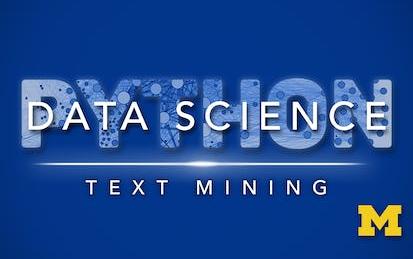
Applied Text Mining in Python
This course will introduce the learner to text mining and text manipulation basics. The course begins with an understanding of how text is handled by python, the structure of text both to the machine and to humans, and an overview of the nltk framework for manipulating text. The second week focuses on common manipulation needs, including regular expressions (searching for text), cleaning text, and preparing text for use by machine learning processes. The third week will apply basic natural language processing methods to text, and demonstrate how text classification is accomplished.
-
Course by

-
 Self Paced
Self Paced
-
 25 ساعات
25 ساعات
-
 الإنجليزية
الإنجليزية
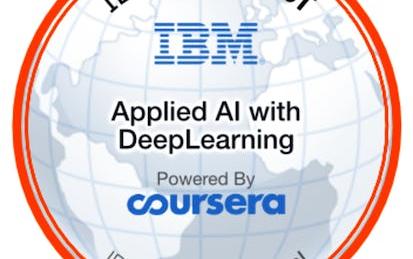
Applied AI with DeepLearning
>>> By enrolling in this course you agree to the End User License Agreement as set out in the FAQ. Once enrolled you can access the license in the Resources area
-
Course by

-
 Self Paced
Self Paced
-
 25 ساعات
25 ساعات
-
 الإنجليزية
الإنجليزية

Sequence Models
In the fifth course of the Deep Learning Specialization, you will become familiar with sequence models and their exciting applications such as speech recognition, music synthesis, chatbots, machine translation, natural language processing (NLP), and more.
-
Course by

-
 Self Paced
Self Paced
-
 37 ساعات
37 ساعات
-
 الإنجليزية
الإنجليزية
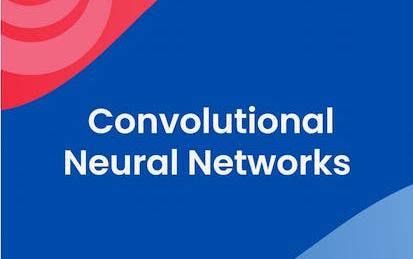
Natural Language Processing with Attention Models
In Course 4 of the Natural Language Processing Specialization, you will: a) Translate complete English sentences into Portuguese using an encoder-decoder attention model, b) Build a Transformer model to summarize text, c) Use T5 and BERT models to perform question-answering. By the end of this Specialization, you will have designed NLP applications that perform question-answering and sentiment analysis, and created tools to translate languages and summarize text! Learners should have a working knowledge of machine learning, intermediate Python including experience with a deep learning fra
-
Course by

-
 Self Paced
Self Paced
-
 35 ساعات
35 ساعات
-
 الإنجليزية
الإنجليزية

Natural Language Processing with Classification and Vector Spaces
In Course 1 of the Natural Language Processing Specialization, you will: a) Perform sentiment analysis of tweets using logistic regression and then naïve Bayes, b) Use vector space models to discover relationships between words and use PCA to reduce the dimensionality of the vector space and visualize those relationships, and c) Write a simple English to French translation algorithm using pre-computed word embeddings and locality-sensitive hashing to relate words via approximate k-nearest neighbor search.
-
Course by

-
 Self Paced
Self Paced
-
 33 ساعات
33 ساعات
-
 الإنجليزية
الإنجليزية

Natural Language Processing in TensorFlow
If you are a software developer who wants to build scalable AI-powered algorithms, you need to understand how to use the tools to build them. This Specialization will teach you best practices for using TensorFlow, a popular open-source framework for machine learning. In Course 3 of the DeepLearning.AI TensorFlow Developer Specialization, you will build natural language processing systems using TensorFlow. You will learn to process text, including tokenizing and representing sentences as vectors, so that they can be input to a neural network.
-
Course by

-
 Self Paced
Self Paced
-
 24 ساعات
24 ساعات
-
 الإنجليزية
الإنجليزية

Natural Language Processing with Probabilistic Models
In Course 2 of the Natural Language Processing Specialization, you will: a) Create a simple auto-correct algorithm using minimum edit distance and dynamic programming, b) Apply the Viterbi Algorithm for part-of-speech (POS) tagging, which is vital for computational linguistics, c) Write a better auto-complete algorithm using an N-gram language model, and d) Write your own Word2Vec model that uses a neural network to compute word embeddings using a continuous bag-of-words model. By the end of this Specialization, you will have designed NLP applications that perform question-answering and se
-
Course by

-
 Self Paced
Self Paced
-
 31 ساعات
31 ساعات
-
 الإنجليزية
الإنجليزية
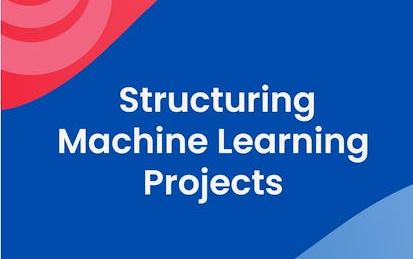
Natural Language Processing with Sequence Models
In Course 3 of the Natural Language Processing Specialization, you will: a) Train a neural network with word embeddings to perform sentiment analysis of tweets, b) Generate synthetic Shakespeare text using a Gated Recurrent Unit (GRU) language model, c) Train a recurrent neural network to perform named entity recognition (NER) using LSTMs with linear layers, and d) Use so-called ‘Siamese’ LSTM models to compare questions in a corpus and identify those that are worded differently but have the same meaning. By the end of this Specialization, you will have designed NLP applications that perfo
-
Course by

-
 Self Paced
Self Paced
-
 24 ساعات
24 ساعات
-
 الإنجليزية
الإنجليزية

AI for Medical Diagnosis
AI is transforming the practice of medicine. It’s helping doctors diagnose patients more accurately, make predictions about patients’ future health, and recommend better treatments. As an AI practitioner, you have the opportunity to join in this transformation of modern medicine. If you're already familiar with some of the math and coding behind AI algorithms, and are eager to develop your skills further to tackle challenges in the healthcare industry, then this specialization is for you. No prior medical expertise is required!
-
Course by

-
 Self Paced
Self Paced
-
 20 ساعات
20 ساعات
-
 الإنجليزية
الإنجليزية
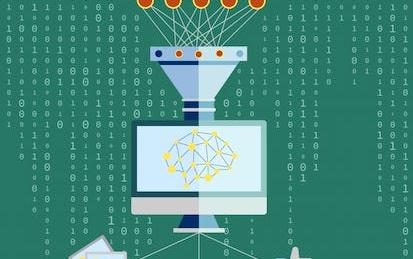
Introduction to Machine Learning
This course will provide you a foundational understanding of machine learning models (logistic regression, multilayer perceptrons, convolutional neural networks, natural language processing, etc.) as well as demonstrate how these models can solve complex problems in a variety of industries, from medical diagnostics to image recognition to text prediction. In addition, we have designed practice exercises that will give you hands-on experience implementing these data science models on data sets.
-
Course by

-
 Self Paced
Self Paced
-
 21 ساعات
21 ساعات
-
 الإنجليزية
الإنجليزية

Generative Pre-trained Transformers (GPT)
Large language models such as GPT-3.5, which powers ChatGPT, are changing how humans interact with computers and how computers can process text. This course will introduce the fundamental ideas of natural language processing and language modelling that underpin these large language models. We will explore the basics of how language models work, and the specifics of how newer neural-based approaches are built. We will examine the key innovations that have enabled Transformer-based large language models to become dominant in solving various language tasks.
-
Course by

-
 التعلم الذاتي
التعلم الذاتي
-
 13 ساعات
13 ساعات
-
 الإنجليزية
الإنجليزية

Generative AI Essentials: Overview and Impact
With the rise of generative artificial intelligence, there has been a growing demand to explore how to use these powerful tools not only in our work but also in our day-to-day lives. Generative AI Essentials: Overview and Impact introduces learners to large language models and generative AI tools, like ChatGPT. In this course, you’ll explore generative AI essentials, how to ethically use artificial intelligence, its implications for authorship, and what regulations for generative AI could look like.
-
Course by

-
 التعلم الذاتي
التعلم الذاتي
-
 6 ساعات
6 ساعات
-
 الإنجليزية
الإنجليزية

Deep Learning
The Deep Learning Specialization is a foundational program that will help you understand the capabilities, challenges, and consequences of deep learning and prepare you to participate in the development of leading-edge AI technology. In this Specialization, you will build and train neural network architectures such as Convolutional Neural Networks, Recurrent Neural Networks, LSTMs, Transformers, and learn how to make them better with strategies such as Dropout, BatchNorm, Xavier/He initialization, and more.
-
Course by

-
 التعلم الذاتي
التعلم الذاتي
-
 الإنجليزية
الإنجليزية

Natural Language Processing
Natural Language Processing (NLP) is a subfield of linguistics, computer science, and artificial intelligence that uses algorithms to interpret and manipulate human language. This technology is one of the most broadly applied areas of machine learning and is critical in effectively analyzing massive quantities of unstructured, text-heavy data.
-
Course by

-
 Self Paced
Self Paced
-
 الإنجليزية
الإنجليزية

ESG Investing: Financial Decisions in Flux
As ESG investing continues to evolve towards a global standard, certain initiatives such as the UN’s sustainable development goals, and the Paris Agreement on climate change, have already spurred significant changes across the financial markets. As the title of this specialization suggests, financial decisions by investors, as well as capital deployment by companies, organizations, and governments, have been shifting amid increasing attention to environmental, social, and governance-related concerns. By the end of this specialization, students with basic knowledge of traditional financial pr
-
Course by

-
 Self Paced
Self Paced
-
 الإنجليزية
الإنجليزية
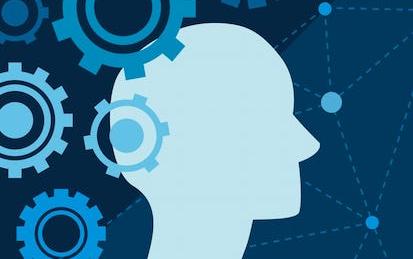
Natural Language Processing and Capstone Assignment
Welcome to Natural Language Processing and Capstone Assignment. In this course we will begin with an Recognize how technical and business techniques can be used to deliver business insight, competitive intelligence, and consumer sentiment. The course concludes with a capstone assignment in which you will apply a wide range of what has been covered in this specialization.
-
Course by

-
 5 ساعات
5 ساعات
-
 الإنجليزية
الإنجليزية

TensorFlow: Advanced Techniques
About TensorFlow TensorFlow is an end-to-end open-source platform for machine learning. It has a comprehensive, flexible ecosystem of tools, libraries, and community resources that lets researchers push the state-of-the-art in ML, and developers easily build and deploy ML-powered applications. TensorFlow is commonly used for machine learning applications such as voice recognition and detection, Google Translate, image recognition, and natural language processing. About this Specialization Expand your knowledge of the Functional API and build exotic non-sequential model types.
-
Course by

-
 Self Paced
Self Paced
-
 الإنجليزية
الإنجليزية
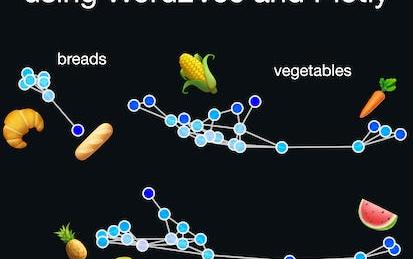
Interactive Word Embeddings using Word2Vec and Plotly
In this 2 hour long project, you will learn how to preprocess a text dataset comprising recipes. You will learn how to use natural language processing techniques to generate word embeddings for these ingredients, using Word2Vec. These word embeddings can be used for recommendations in an online store based on added items in a basket, or to suggest alternative items as replacements when stock is limited. You will build this recommendation/discovery feature in an interactive and aesthetic visualization tool.
-
Course by

-
 Self Paced
Self Paced
-
 3 ساعات
3 ساعات
-
 الإنجليزية
الإنجليزية


AI Workflow: Machine Learning, Visual Recognition and NLP
This is the fourth course in the IBM AI Enterprise Workflow Certification specialization. You are STRONGLY encouraged to complete these courses in order as they are not individual independent courses, but part of a workflow where each course builds on the previous ones. Course 4 covers the next stage of the workflow, setting up models and their associated data pipelines for a hypothetical streaming media company. The first topic covers the complex topic of evaluation metrics, where you will learn best practices for a number of different metrics including regressi
-
Course by

-
 Self Paced
Self Paced
-
 14 ساعات
14 ساعات
-
 الإنجليزية
الإنجليزية

Fine Tune BERT for Text Classification with TensorFlow
This is a guided project on fine-tuning a Bidirectional Transformers for Language Understanding (BERT) model for text classification with TensorFlow. In this 2.5 hour long project, you will learn to preprocess and tokenize data for BERT classification, build TensorFlow input pipelines for text data with the tf.data API, and train and evaluate a fine-tuned BERT model for text classification with TensorFlow 2 and TensorFlow Hub.
-
Course by

-
 Self Paced
Self Paced
-
 3 ساعات
3 ساعات
-
 الإنجليزية
الإنجليزية

Natural Language Processing in Microsoft Azure
Natural language processing supports applications that can see, hear, speak with, and understand users. Using text analytics, translation, and language understanding services, Microsoft Azure makes it easy to build applications that support natural language. In this course, you will learn how to use the Text Analytics service for advanced natural language processing of raw text for sentiment analysis, key phrase extraction, named entity recognition, and language detection. You will learn how to recognize and synthesize speech by using Azure Cognitive Services.
-
Course by

-
 8 ساعات
8 ساعات
-
 الإنجليزية
الإنجليزية

JSON and Natural Language Processing in PostgreSQL
Within this course, you’ll learn about how PostgreSQL creates and uses inverted indexes for JSON and natural language content. We will use various sources of data for our databases, including access to an online API and spidering its data and storing the data in a JSON column in PostgreSQL. Students will explore how full-text inverted indexes are structured. Students will build their own inverted indexes and then make use of PostgreSQL built-in capabilities to support full-text indexes.
-
Course by

-
 Self Paced
Self Paced
-
 16 ساعات
16 ساعات
-
 الإنجليزية
الإنجليزية

Named Entity Recognition using LSTMs with Keras
In this 1-hour long project-based course, you will use the Keras API with TensorFlow as its backend to build and train a bidirectional LSTM neural network model to recognize named entities in text data. Named entity recognition models can be used to identify mentions of people, locations, organizations, etc. Named entity recognition is not only a standalone tool for information extraction, but it also an invaluable preprocessing step for many downstream natural language processing applications like machine translation, question answering, and text summarization.
-
Course by

-
 Self Paced
Self Paced
-
 2 ساعات
2 ساعات
-
 الإنجليزية
الإنجليزية

Assessment for Learning
For several decades now, assessment has become an increasingly pressing educational priority. Teacher and school accountability systems have come to be based on analysis of large-scale, standardized summative assessments. As a consequence, assessment now dominates most conversations about reform, particularly as a measure of teacher and school accountability for learner performance. Behind the often heated and at times ideologically gridlocked debate is a genuine challenge to address gaps in achievement between different demographically identifiable groups of students.
-
Course by

-
 Self Paced
Self Paced
-
 14 ساعات
14 ساعات
-
 الإنجليزية
الإنجليزية



